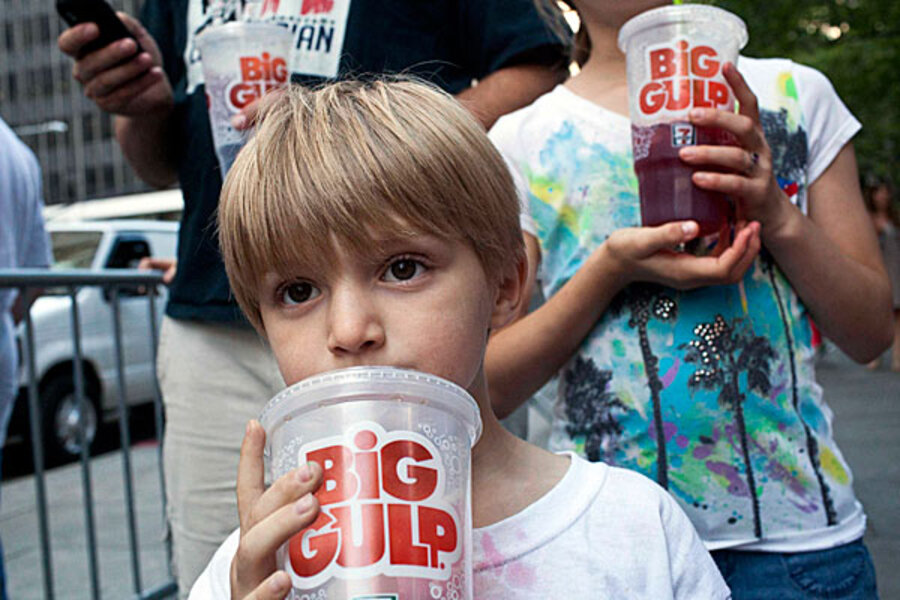Sugary drinks study highlights the wants vs. needs conflict for parents
Loading...
A study reported in the September print edition of Pediatrics reveals something that can't be an enormous surprise to most parents: when preschoolers routinely consume sugary drinks (including fruit juice), the extra calories tend to turn into extra pounds. Researchers found that among 2-5 year olds, those who downed sugary beverages on a regular basis were 43 percent more like to be obese than their peers. The study took into account family income and TV viewing, but didn't look at overall diet, making it persuasive but not necessarily conclusive.
Other studies (including a much-discussed one in the British health journal Lancet) point in a similar direction, and it's not a hard premise to buy: water or protein-rich milk will do less damage to the waistline than a beverage that is essentially an injection of sugar.
In one sense, it's obvious, and parallel to advice that we're given at every age as we try to lose weight or maintain a healthy lifestyle: some variation of "don't drink your calories" is near the core of many diet programs, and is one of those "well, duh" healthy lifestyle moves that would be a massive lifesaver if only it was easier to abide by.
But temptations are everywhere. For parents, there is the constant exposure (via marketing and advertising) to the idea that fruit is natural and healthy – not such a bad message, except that "fruit" so easily migrates over into "fruit roll-ups," and "fruit candy" and "fruit juice" and "fruit-flavored beverage with some real fruit juice in it." "Fruit" becomes a compromise – a way for kids to satisfy sugar-cravings while parents can feel OK about themselves for dispensing "healthy" choices.
This of course is just one of the first of many conflicts in any parent's life, between what your kids want (a brownie sundae for dessert every night, fireworks, a sports car) and what they probably actually need (a sensible dessert choice, not fireworks, a safe, reliable vehicle with lots of airbags). It's a conflict that takes place on such a subtle level that unless you're thinking about it due to a study like the one in Pediatrics, you may not be aware that it even exists.
The health issues raised by being seriously overweight, or obese, are enough of a reason to conscientiously work to be aware of this stuff, of course. If you can set your kids on a healthy path when they're young, they'll have a fighting chance when they float through the junkyard of high-sugar, high-fat garbage that makes up most fast food and much of the pre-prepared and junk food that fills up the shelves at stores in modern-day America.






